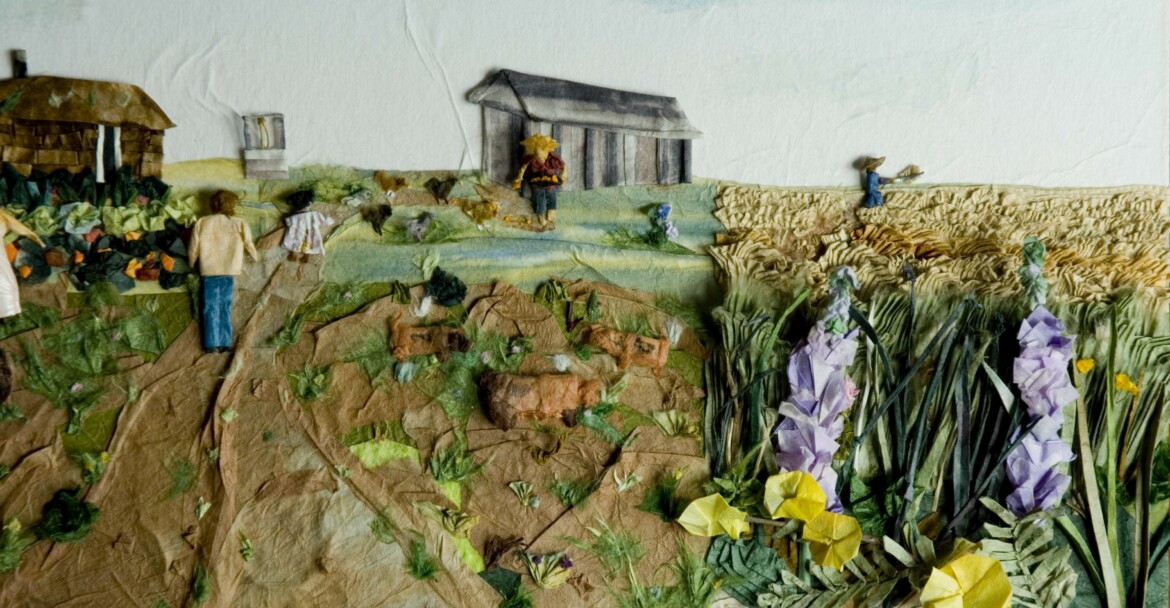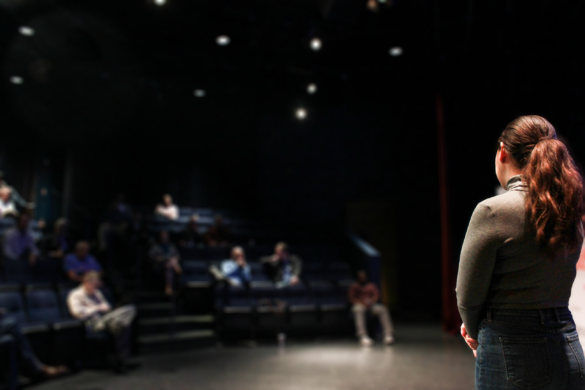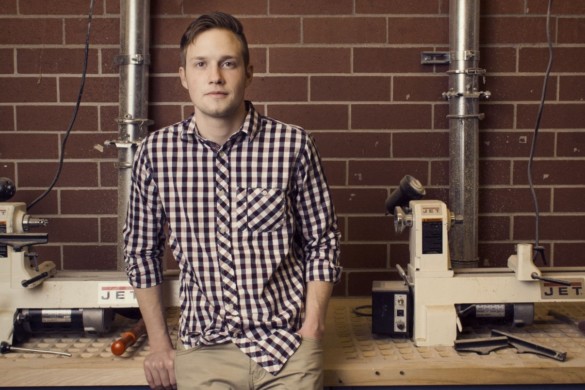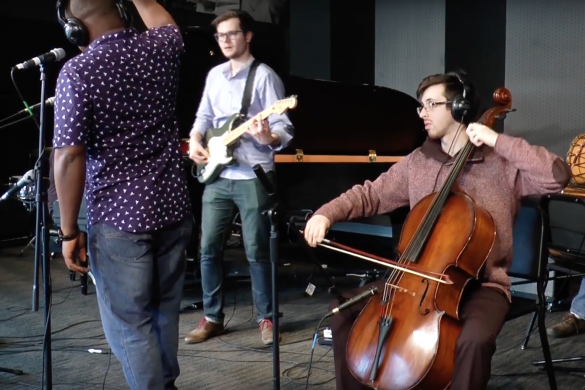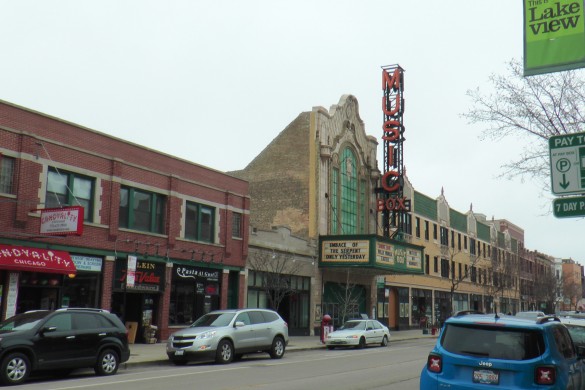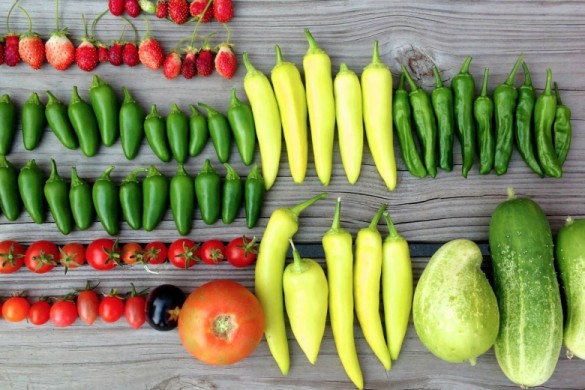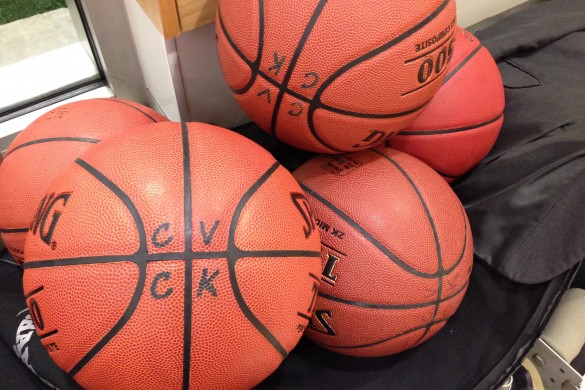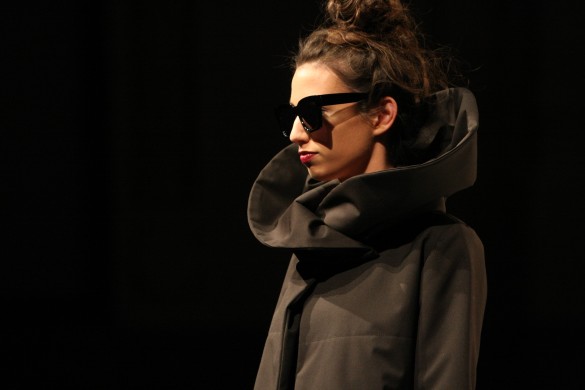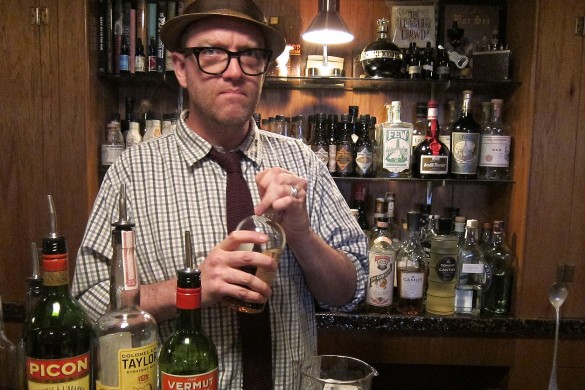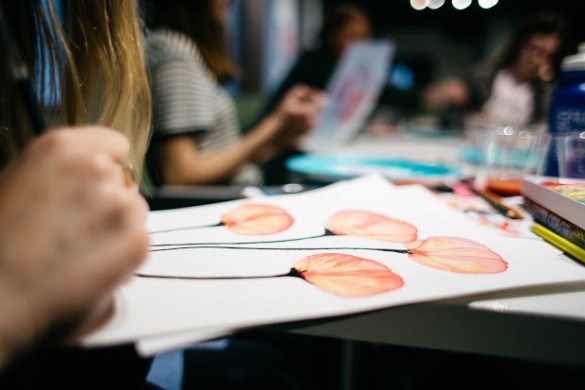Small towns don’t look quite so quaint when they’re transformed into Linda Stephen’s vibrant origami displays. And big cities aren’t so overwhelming when reduced to intimate street scenes in Elsa Munoz’s oil paintings. While each artist’s approach to representing the Midwest is different, there’s one they both, and many other artists, have in common: reimagining.
For painter Bill Frederick, this means painting from photographs but manipulating several elements to create a new mood. For sculptor Iggy Sumnik, it means setting aside the all-too-familiar Midwestern stereotypes that too often drive its image. And for painter Ben Schuh, it means juxtaposing country life with city life. For these five Midwestern artists, what they happen to see and portray isn’t always what can be described as the “traditional Midwest.”
Iggy Sumnik, Omaha — Sculptor
It all comes down to touch. Iggy Sumnik was drawn to the tangibility of ceramics. He liked the feel of it. And he liked how ceramics allowed him to step outside his comfort zone, forcing him to keep striving. But translating the vision in his head to the clay didn’t necessarily match up. Eventually Sumnik found a way to translate his visual flair to his sculptures while living in Omaha. Here, Sumnik set himself apart from other artists through his one-of-a-kind reimagining of experiences like in his bright, cartoonish version of big Nebraska skies.
“I have the desire to bring out visual patterning. Thinking about primitive culture and universal language, arrows, zig zags, and bright colors,” Sumnik says. “Things that would be intrinsically interesting just to look at, and you don’t have to make sense of them.”
For Sumnik, his sculpture “Pelican on the Prairie” embodies his change of heart with the Midwest. After seeing a pelican land on the plains of Nebraska, he rethought his preconceptions about the area. Before, the Michigan native thought pelicans were ocean birds, not Midwestern. “Seeing this pelican landing turned into something that defines what the magic of Nebraska was for me,” Sumnik says. “It’s the unexpected elements here, and it’s not necessarily as predictable and cut and clear as I once saw it.”
Ben Schuh, Des Moines — Painter
Ben Schuh grew up surrounded by cattle. It’s stereotypical, sure: Iowa boy grows up with cows in his backyard. And yes, he was in 4-H, and his mother did show cattle for years. But the kind of cows that show up in Schuh’s paintings aren’t your pasture grazers. His latest series, appropriately titled “On Location,” shows cows meandering about in unexpected locations. On the White House lawn. Through the busy streets of Times Square. Out and about in Des Moines hotspots, like the Iowa Capitol’s front steps.

Ben Schuh’s latest series, “On Location,” juxtaposes cows in unexpected places, like
wandering across Times Square.
It’s this strange juxtaposition that Schuh has used to challenge perception. “Just by doing that, it’s challenging people to look at the painting for where it’s at and try to separate some of the pieces,” Schuh says. “It creates this conversation for patrons or viewers. It’s just this constant evolution.”
City life in Des Moines shines through Schuh’s paintings just as much as the country does. Des Moines cityscape references and local businesses, like Smokey Row Coffee, inspire Schuh to capture what their essence means to him. Being centrally located in Iowa allows him to connect his roots with other metropolitan areas around the Midwest. Even with locally focused themes, national audiences are taking notice. He shows his work around the country and found his local inspirations widely accepted. “I think it might go back to a lot of people traveling outside of this area, buying pieces that remind them of home,” Schuh says.
Elsa Munoz, Chicago — Oil painter
To Elsa Munoz, painting the Midwest never meant painting fields and farms. She’d grown up in a working-class neighborhood in Chicago, and, she says, it wasn’t a pretty sight. Which is ultimately what sent her down a more artistic path, spending her time indoors with a paintbrush in hand. Today, Munoz’s style is traditional realism. The goal? Keeping it simple.

Elsa Munoz captures the destructive beauty of tornadoes across the Midwest in her painting “Tornado 17.”
“There’s no irony in my paintings. There’s nothing that is trying to be fashionable,” Munoz says. “I just paint what I know and what I think is important to communicate. That’s it.”
That sincerity and honesty is obvious in Munoz’s more traditional Midwest paintings. A spiral staircase that’s immediately recognized by the community as “quintessentially Chicago” elaborately winds up in the painting. A young girl sits indoors while getting her hair done by an older female family member. And, though never found in her home city, a tornado series inspired by the television show Storm Chasers shows the beauty in nature’s destructiveness.
“The Midwest just encompasses so many different types of landscapes and urbanscapes. Just growing up in a bad neighborhood is also part of the Midwest,” Munoz says. “It’s not all plains and cornfields and pretty stuff.”
Bill Frederick, Chicago — Painter and photographer
For Bill Frederick, painting from photographs is like reimagining daily experiences in dreams. Frederick’s paintings are to his artistic flair as dreaming is to us, he says. He’s concocting new moods and even storylines from one static image to the next, more vibrant one: his painting. “When you fall asleep, one of the main things you do is take your waking experiences and you dream about it in a scrambled, unique way,” he says. “And that’s basically what I’m doing making pictures.”

Bill Frederick reimagines photographs he’s snapped, like in his painting “Lightning, Port Austin.” Here, what was once a sunny day has turned into a threatening storm overtaking a small-town gas station.
Frederick pinpoints the western Great Lakes, Illinois, and Wisconsin as his home turf. It’s there where he finds ways to put his own spin on everyday encounters. More often than not, Frederick doesn’t copy the photograph of a landscape to a T. Rather, he’s looking to make something that’s more like a novel or short story.
Example: One of his most recent pieces, “Lightning, Port Austin.” The original photo he snapped at a gas station on a sunny day in Michigan was just a starting point. The painting tells a different story. Threatening storm clouds encompass the Shell Gas Station. Many cars in the original photo have been eliminated in the final painting, and the neighborhood has shifted to a more tranquil setting. Even the Shell sign itself has morphed into its older logo style. Frederick’s reimagining depicts something entirely new, and one that invites viewers to see their own environments in a new light.
“When I’m making a picture, I think more about the emotional feeling that the picture gives than anything else,” Frederick says. “I don’t feel any particular connection to the facts on the ground. It seems unnecessary.”
Linda Stephen, Omaha — Origami artist
She didn’t want to make humans out of paper at first because folding limbs and faces into origami is the hardest part of the artform. But eventually, to create an origami community, Linda Stephen had to have the people. In her pieces, Stephens aims to remind native Midwesterners to take a step back and appreciate their surroundings. The bustle of a busy farmers’ market. The lobby of a Grand Rapids, Michigan, hotel. A colorful marching band practicing in front of the Minden, Nebraska opera house.
“There was a huge restoration project that took place there, and people of all ages came out to help,” Stephen says. “The community coming together, those kind of themes are what I like to celebrate.”
In Stephen’s scenes, handmade fabric papers with elaborate gold detailing in her origami give her static paintings a three-dimensional touch. Hidden treasures of the Midwest come out: a farmer tranquilly looking out toward a lush prairie, a sunny spring day at the park. All in folds of paper.

